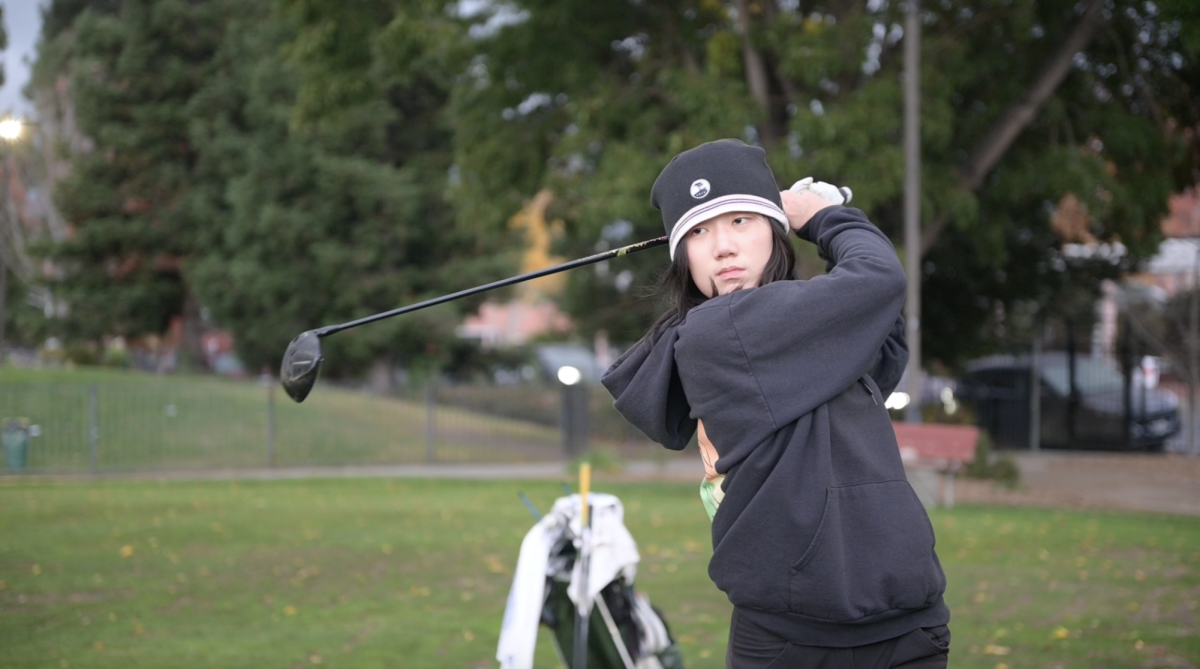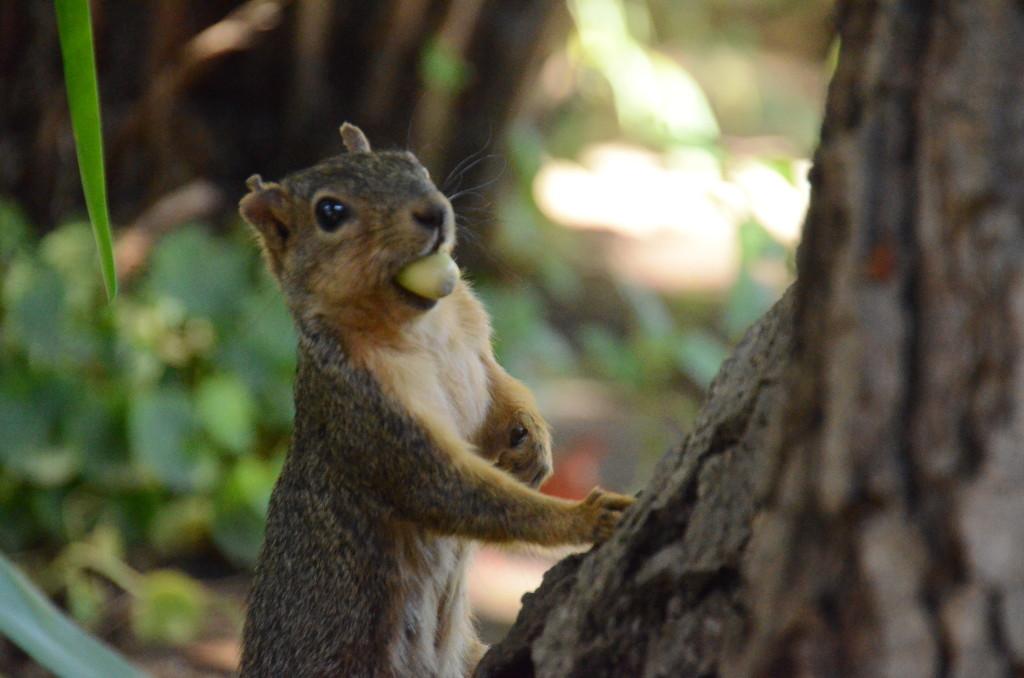Squirrels wreak disaster on garden beds
Attempts by the Gardening Club to plant onions and arugula in garden beds next to Main have been hindered by campus squirrels distributing their nuts, an annual problem.
“There’s just so many of them,” said Ben Spencer-Cooke, English teacher and Gardening Club advisor, referring to the abundance of squirrels, a problem spurred by the plentiful oak trees and student food that abound on campus.
The garden, sheltered by the cover of trees in an area relatively distant from the commotion of students, serves as a prime location for squirrels to hide their nuts.
“Fox squirrels are fairly territorial, and look for an area to find shelter and food, placing their nuts there and working to establish this area from other squirrels,“ said Jen Constantin, Outreach and Education Director at the Wildlife Center of Silicon Valley.
“There are mostly eastern fox and eastern grey squirrels in the South Bay, but the eastern greys tend to stay around the outskirts of the city,” Constantin said.
Fox squirrels, most commonly found on campus, behave in a fairly territorial manner and tend to invest their nuts in several hiding spots in a close proximity, reducing the risks of losing all their savings at once.
According to a 2012 UC Berkeley study conducted by psychology undergraduate students, most fox squirrels will pick up a nut using their teeth and paws, and peel off the husk to eat it on the spot. Or they will find a nearby place to bury it, travelling as far as 100 meters to hide their catch, often having many hiding spots in a single area.
“There’s a huge oak tree right above the [garden] beds. It drops a lot of seeds right over them,” club member Lev Sepetov (10) said, citing one of the reasons for the activity.
The squirrels have especially become a problem as winter approaches, digging little holes to bury their nuts for winter storage.
Currently, only green tulle, a lightweight fabric, is used to cover the garden beds, but it doesn’t seem to be discouraging the squirrels from breaking through.
“They’re really smart about burying them [nuts]. I’ve never seen them but they’re always leaving holes in the tulle covering the beds,” co-President of Gardening Club Ashwini Iyer (11) said.
To protect the garden in the future, Constantin urges gardeners to create a hot pepper spray to mist around plants or wrap the bases of trees with sheet metal to keep squirrels away.
“There are winter covers that let light through for the plants and protect them from frost and squirrels, but are somewhat expensive,” Spencer-Cooke also added.
Squirrels have been a source of problems in other aspects of campus life, such as leading to tighter lids being kept on trash cans around the Upper School.
“A lot of people take pride in their gardens, but it’s important to focus on the issues of coexistence with these creatures,” Constantin said.

Kavya Ramakrishnan (12) is the managing editor of the Winged Post. This is her fourth year on staff, having previously held the positions of reporter and...































![Setter Emma Lee (9) sets the ball to the middle during the match against Pinewood on Sept. 12. “[I’m looking forward to] getting more skilled, learning more about my position and also becoming better friends with all of my teammates, Emma said.](https://harkeraquila.com/wp-content/uploads/2023/09/DSC_4917-2-1200x795.jpg)



































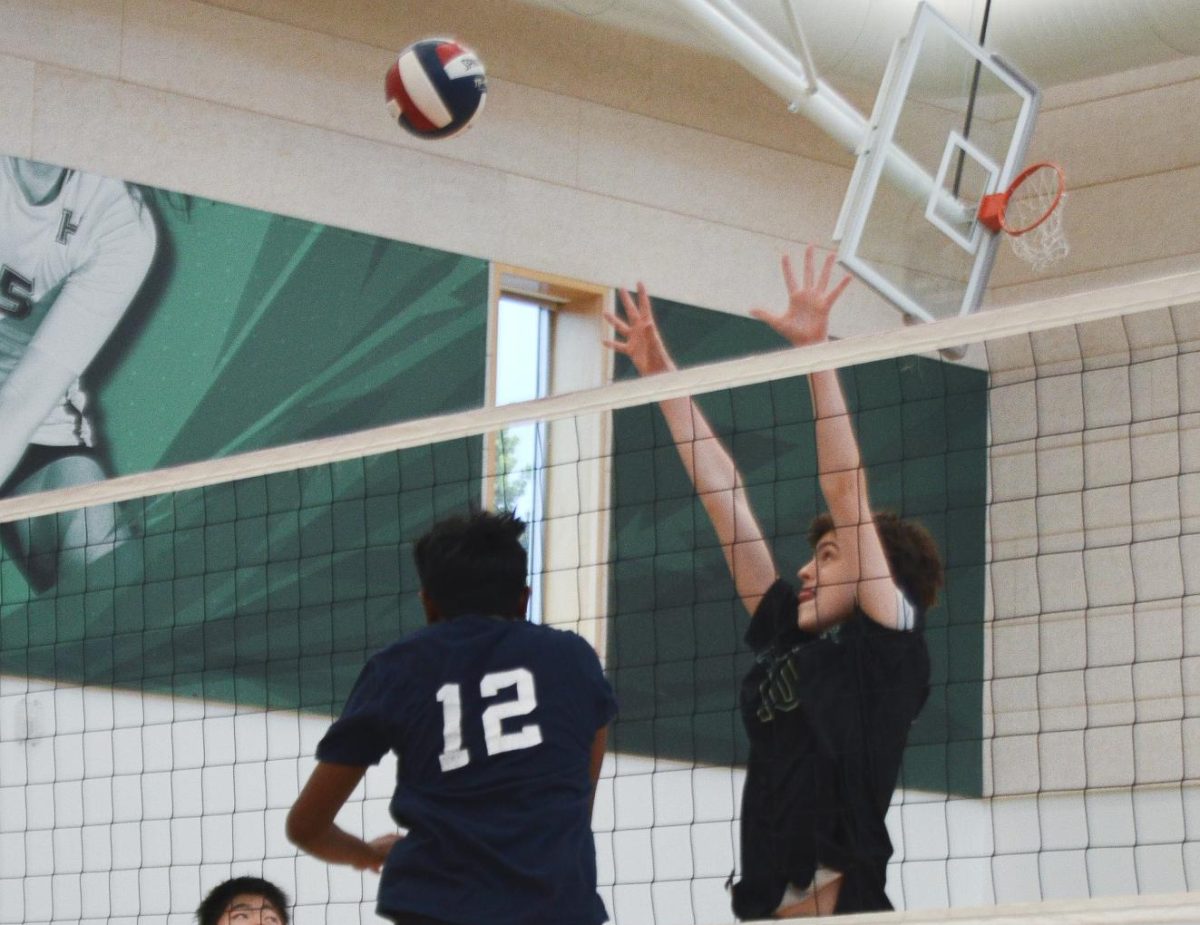






























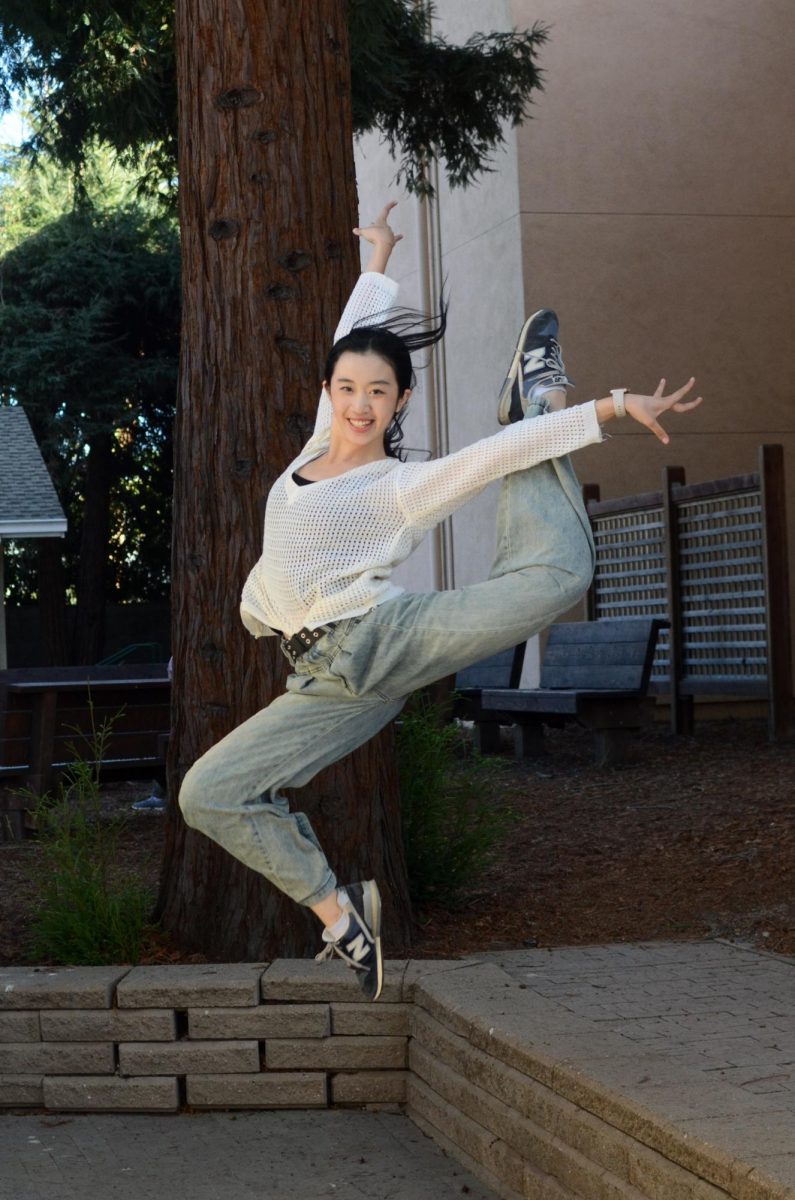
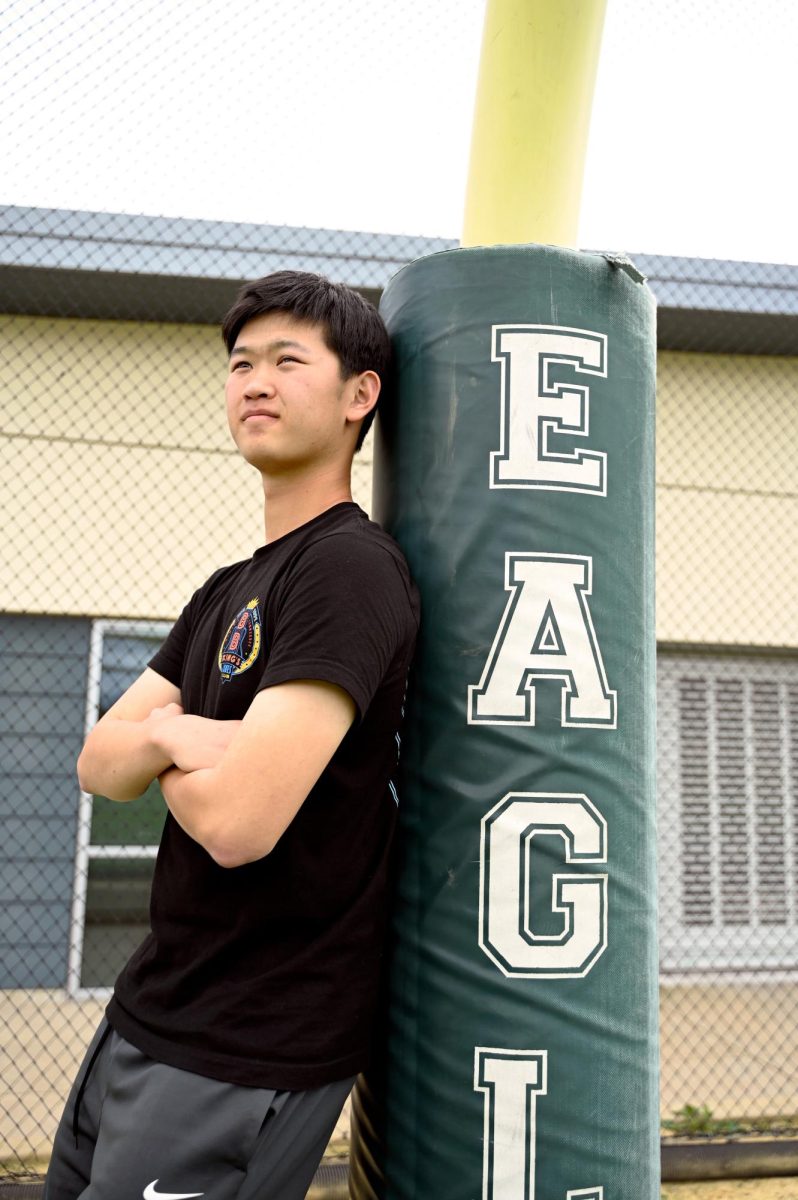










![“[Building nerf blasters] became this outlet of creativity for me that hasnt been matched by anything else. The process [of] making a build complete to your desire is such a painstakingly difficult process, but Ive had to learn from [the skills needed from] soldering to proper painting. Theres so many different options for everything, if you think about it, it exists. The best part is [that] if it doesnt exist, you can build it yourself, Ishaan Parate said.](https://harkeraquila.com/wp-content/uploads/2022/08/DSC_8149-900x604.jpg)


![“Animation just clicked in a way. I had been interested in art, but that felt different. [Animation] felt like it had something behind it, whereas previous things felt surface level. I wasnt making that crazy of things, but just the process of doing it was much more enjoyable, Carter Chadwick (22) said.](https://harkeraquila.com/wp-content/uploads/2022/08/Screen-Shot-2022-08-16-at-9.44.08-AM-900x598.png)


![“When I came into high school, I was ready to be a follower. But DECA was a game changer for me. It helped me overcome my fear of public speaking, and its played such a major role in who Ive become today. To be able to successfully lead a chapter of 150 students, an officer team and be one of the upperclassmen I once really admired is something Im [really] proud of,” Anvitha Tummala (21) said.](https://harkeraquila.com/wp-content/uploads/2021/07/Screen-Shot-2021-07-25-at-9.50.05-AM-900x594.png)



![“[Volleyball has] taught me how to fall correctly, and another thing it taught is that you don’t have to be the best at something to be good at it. If you just hit the ball in a smart way, then it still scores points and you’re good at it. You could be a background player and still make a much bigger impact on the team than you would think,” Anya Gert (’20) said.](https://harkeraquila.com/wp-content/uploads/2020/06/AnnaGert_JinTuan_HoHPhotoEdited-600x900.jpeg)

![“Im not nearly there yet, but [my confidence has] definitely been getting better since I was pretty shy and timid coming into Harker my freshman year. I know that theres a lot of people that are really confident in what they do, and I really admire them. Everyones so driven and that has really pushed me to kind of try to find my own place in high school and be more confident,” Alyssa Huang (’20) said.](https://harkeraquila.com/wp-content/uploads/2020/06/AlyssaHuang_EmilyChen_HoHPhoto-900x749.jpeg)













![“My slogan is ‘slow feet, don’t eat, and I’m hungry.’ You need to run fast to get where you are–you arent going to get those championships if you arent fast,” Angel Cervantes (12) said. “I want to do well in school on my tests and in track and win championships for my team. I live by that, [and] I can do that anywhere: in the classroom or on the field.”](https://harkeraquila.com/wp-content/uploads/2018/06/DSC5146-900x601.jpg)

![“I think getting up in the morning and having a sense of purpose [is exciting]. I think without a certain amount of drive, life is kind of obsolete and mundane, and I think having that every single day is what makes each day unique and kind of makes life exciting,” Neymika Jain (12) said.](https://harkeraquila.com/wp-content/uploads/2017/06/Screen-Shot-2017-06-03-at-4.54.16-PM.png)






